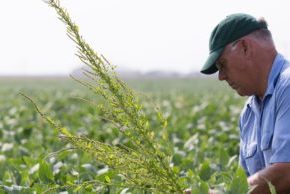Do Foliar Fungicides Pay and When?
“Should I apply a foliar fungicide and if so, when?” is a question North Carolina soybean growers struggle with every year. Application of a foliar fungicide can help reduce disease pressure and protect yield potential, but they are costly. With low commodity prices, growers are looking to reduce costs. Are fungicides a smart investment? To…
Details









